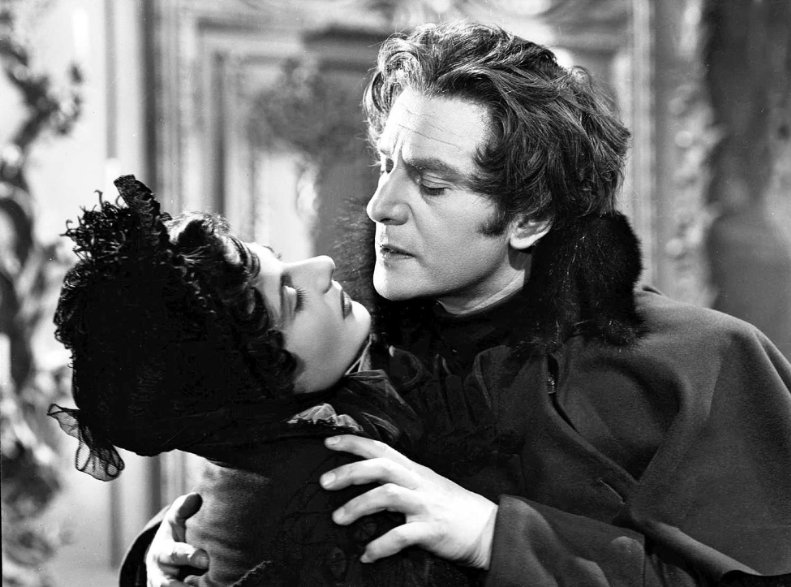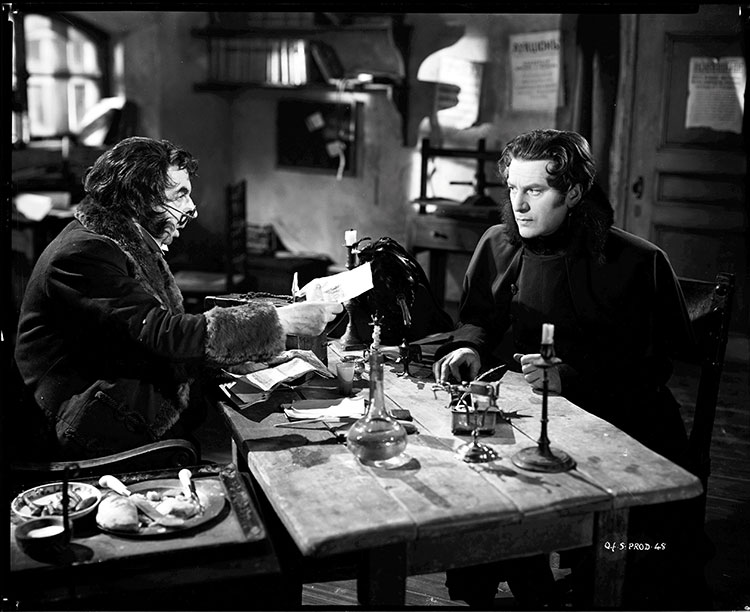The Queen of Spades
PGWhenever there’s a major sporting event, as we’ve just had with the World Cup, we’re inundated with adverts that attempt to entice us into the world of gambling, followed by the sombre voice of Ray Winstone to tell us to gamble responsibly. As if there was anything responsible about gambling.
But if you want a real warning regarding the dangers of gambling, then this intriguing British film from 1949 will be far more effective than any TV ad.

Pefect, this scene will double as my audition for that vampire film they're doing.
St Petersburg, 1806, and the Russian soldiers are enjoying their down time playing a card game called Faro, similar to Snap, whilst drinking hard and enjoying the company of scantily clad gypsies for their entertainment.
One soldier, Herman (Anton Walbrook), who despite his aspirations is a fairly low paid captain of engineers. He wants more from life, and believes that the cards to be the answer to his financial problems.
He’s no mug however, as he doesn’t want to waste waging the little savings he has, without a guarantee. But of course the only guarantee you get from gambling is that you will lose money.
Herman comes across a very rare book however, that gives guidance to getting the secret of the cards, that a young woman was once told.
It transpires that this woman is still alive – just – and is a famous Countess (Edith Evans) living in the city.
Because of his lowly station, he can’t just walk up to the Countess and converse, so he hatches a dastardly plan, which if he pulls it off, could make him wildly rich. But as he soon discovers, it’s a very big ‘if’ indeed.

No, actually, I will have the double cheeseburger, but i'll have curly fries with it instead.
Despite the distinctive name, director Thorold Dickinson may not be one you’re that familiar with. And yet his work, specifically this film, has been hailed as a true classic by the likes of Scorsese. And after watching it, you can see why.
It is a dark tale about greed, and the lengths someone would go to, to change their situation. The story itself is based on a short story of the same name, written by Alexander Pushkin, and dips into the world of the dark arts.
It’s all rather tame for the first half of the film, as you would expect for a feature from 1949, but does a wonderful job in setting the scene, with some incredible set designs, costumes and rich characterisations. One of the most notable being that of Dame Edith Evans, who up until this point in her career had made a considerable name for herself on stage, with this her first film role. She is deliciously cantankerous, not afraid to speak her mind in the slightest.
And just as Dickinson goes about creating his world in the first half, it becomes noticeably darker in the second, as the main protagonist is seduced by the idea of embracing the occult to get what he wants. It’s done with such remarkable skill that you can see it creating a tangible level of fear in cinemas when it was first released.
You can also see how it would have been a forbearer for the likes of Roman Polanski, particularly Rosemary’s Baby, by creating a foreboding atmosphere out of the ordinary.
This is an incredibly rare opportunity to see such a gem back on the big screen (and shortly released for smaller screens at home too), in this impressively restored state, looking so good that it can’t fall that short from matching how it must have looked on its original release.
The Queen of Spades has been to this point mostly underappreciated which will hopefully change with this release, as it does so much right, with some striking cinematography and its unusual story, making it a winning ace from the British archives.
